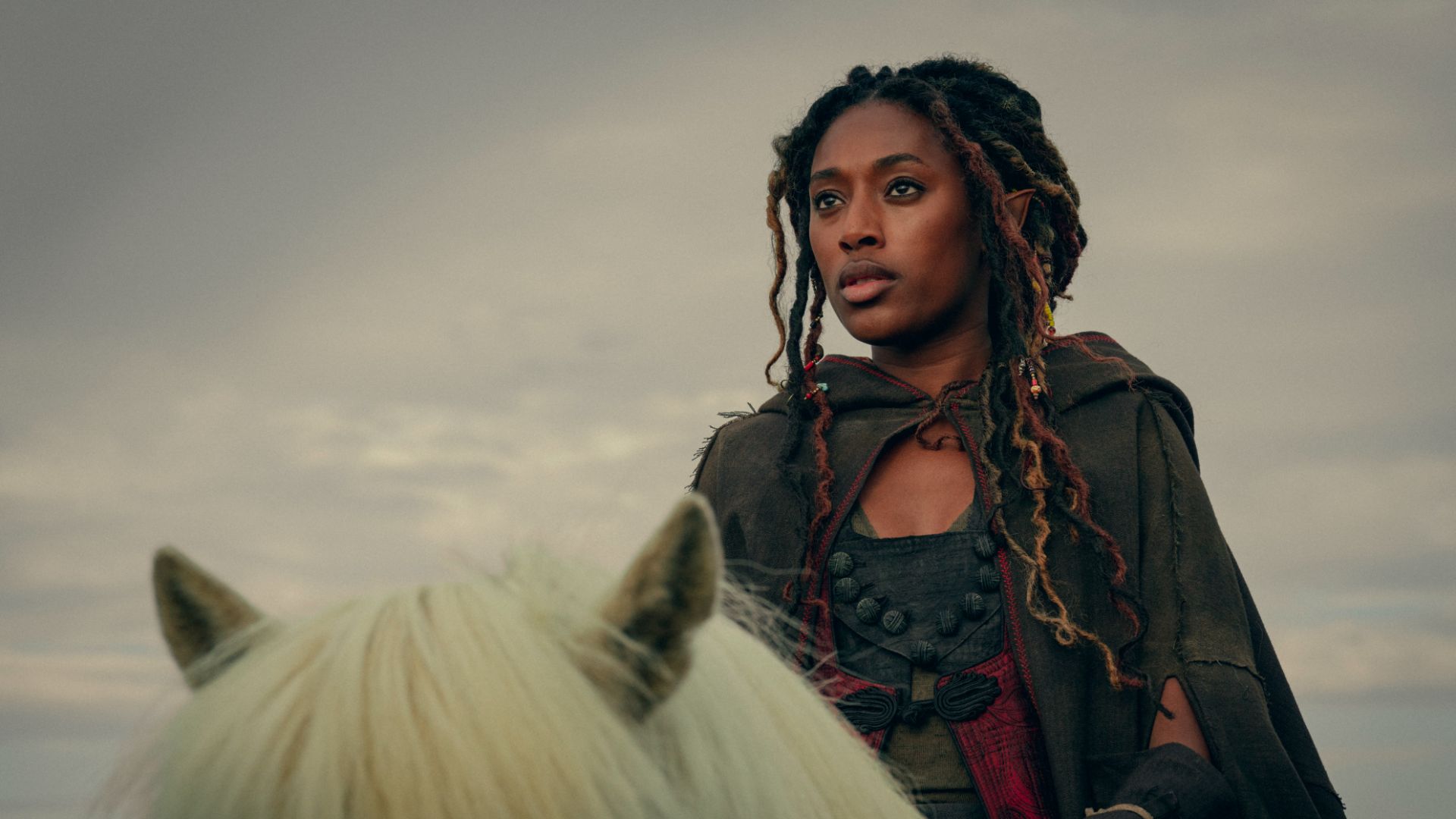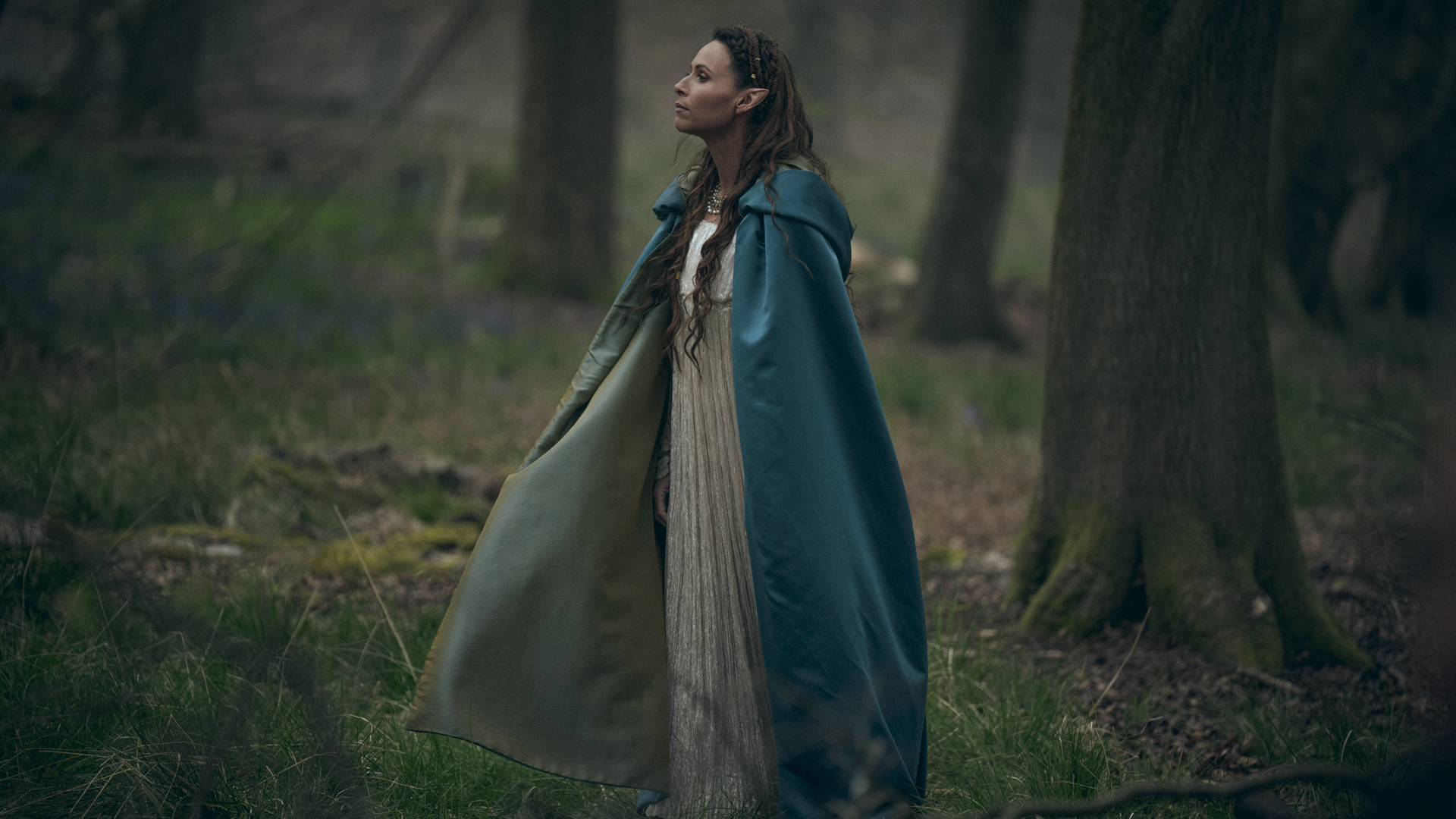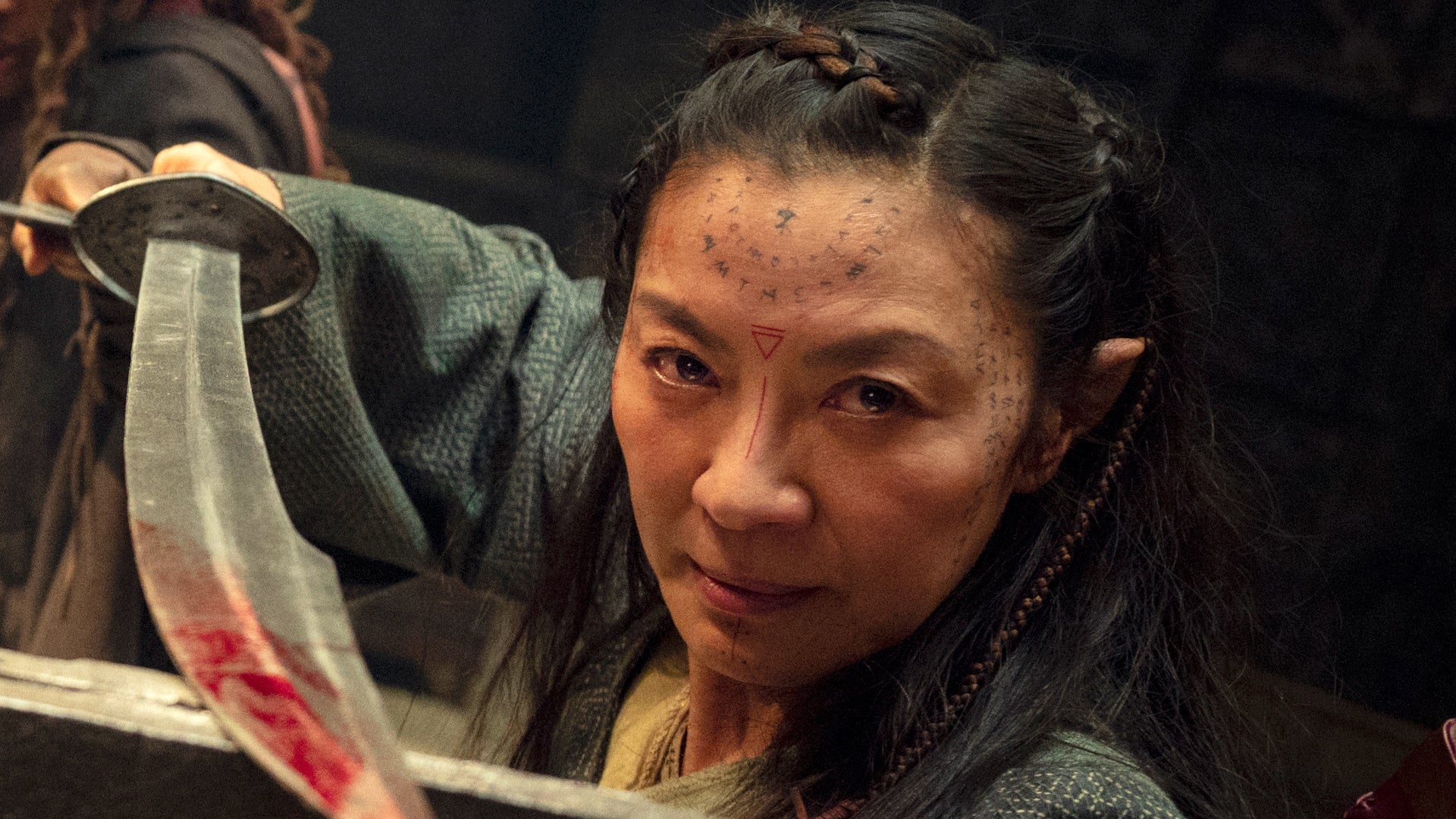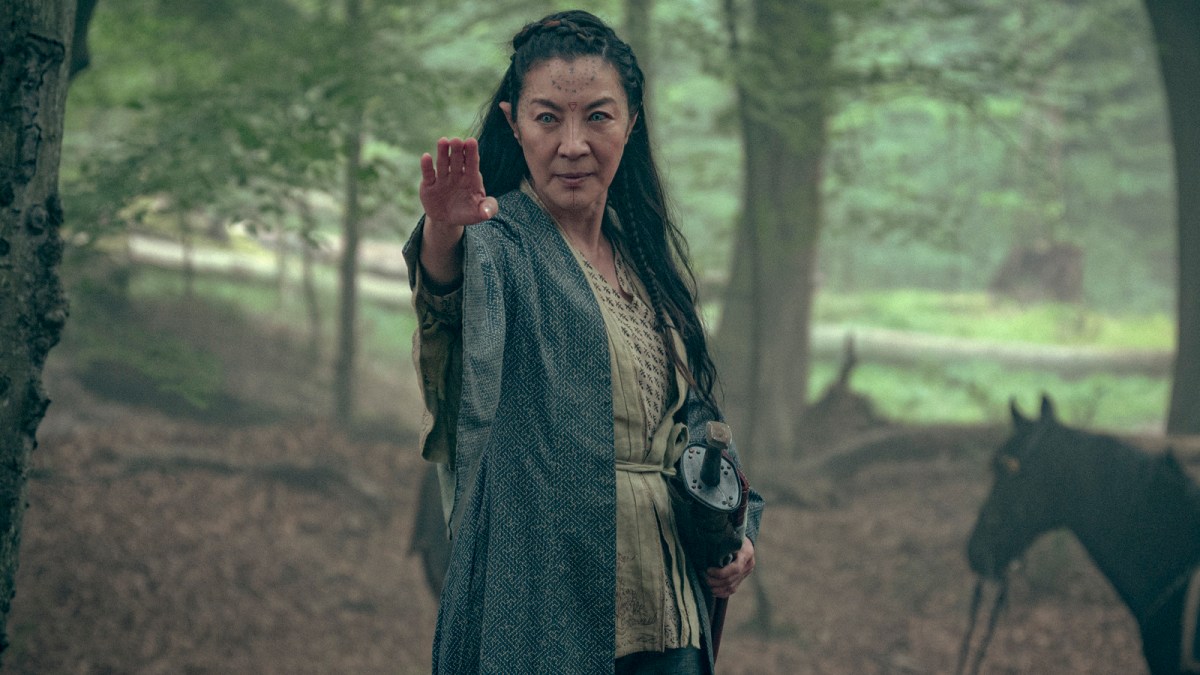This discussion and review contains light spoilers for The Witcher: Blood Origin, a four-part prequel miniseries to The Witcher premiering on Netflix on December 25.
Netflix has been eagerly looking for its own blockbuster franchise, to the point of willing it into existence when the data doesn’t seem to support it. The company famously announced plans for a sequel to its first blockbuster, Bright, in January 2018. That sequel languished in development hell but was only officially canceled in April 2022. It did at least get an anime spinoff, Bright: Samurai Soul. It’s been similarly bullish on announcing sequels and spinoffs to The Gray Man.
However, the company has enjoyed greater success with The Witcher. The series has been tremendously successful for Netflix and allows the streaming service to plant its own flag in the arms race to find “the next Game of Thrones.” The company has been eager to build on the success of The Witcher, even releasing a spinoff anime movie, Nightmare of the Wolf. However, The Witcher: Blood Origin feels like a clear escalation in this attempt at franchise-building, even beyond giving the franchise its own stylized ident.
Blood Origin is a four-episode live-action miniseries. As the title implies, it offers an origin story for the larger franchise. It unfolds 1,200 years before the events of The Witcher, depicting key historical events within the fictional universe: the creation of the first Witcher and the “Conjunction of the Spheres” that brought humans and monsters to the show’s world. It is a big investment for Netflix, and it assumes that audiences are drawn to the world of The Witcher as much as its characters.
Blood Origin belongs to a wave of big-budget fantasy prequel shows — series that invite the audience to explore familiar surroundings centuries or millennia before the stories that they know. It is similar to what HBO accomplished with House of the Dragon and what Amazon attempted with The Rings of Power. Disney even appears to be cashing in on the trend, with the streaming series The Acolyte reportedly set a century before The Phantom Menace. It’s definitely a trend.

Of course, Netflix is betting big on Blood Origin, but it doesn’t really have any other option. It was recently announced that lead actor Henry Cavill would be departing The Witcher following the show’s third season, to be replaced by Liam Hemsworth. With all due respect to Hemsworth, who may well excel in the title role, Netflix has a very vested interest in proving to itself that audiences will show up to watch a Witcher television series without the Witcher in it.
All of this context feels important to understanding Blood Origin. It is certainly more important than the actual plot of the show, which seems to have been designed entirely by algorithm and then executed by the clumsiest hand imaginable. Blood Origin is ostensibly a show about the “lore” and the “world” of The Witcher, but in reality it is just a collection of fantasy tropes and movie references thrown into a blender together, in the hope that whatever comes out will be sufficient “content.”
The basic premise of the show is an ensemble action story about an unlikely group of heroes who find themselves drawn together to fight an impossible threat to the realm. It is, in the broadest possible terms, a riff on the classic template that was best codified by Akira Kurosawa with Seven Samurai. There’s nothing inherently wrong with this. The template endures for a reason, and it works well as the basis for an action adventure; it allows for movement and character development.
The big problem with Blood Origin is that the show doesn’t really have any interesting characters. The group is a collection of broadly drawn archetypes: Éile (Sophia Brown) is a warrior-turned-magician; Fjall (Laurence O’Fuarain) is an exiled royal bodyguard; Scian (Michelle Yeoh) is the lone survivor of a murdered tribe; Callan (Huw Novelli) is a mercenary; Meldof (Francesca Mills) is a woman avenging her lost love; Zacaré (Lizzie Annis) and Syndril (Zach Wyatt) are magic twins.

Blood Origin was announced as a six-episode miniseries. It was scripted and shot as a six-episode miniseries. However, it is being released as a four-episode miniseries. Looking at changes to the announced credits, it seems that the big alterations were in the middle, with the central four episodes condensed down to two. According to co-showrunner Lauren Schmidt-Hissrich, the scenes trimmed were mostly “beautiful scenes of people around campfires and sort of slowing down.”
Of course, it’s important to stress here that Blood Origin was probably not a secret masterpiece before those changes were made. After all, co-showrunner Declan de Barra’s past credits include working as a writer on Iron Fist, and there’s enough evidence from what remains in these four episodes that Blood Origin was probably always clunky. After all, it doesn’t say much of attempts to speed up the show that Blood Origin still feels interminable.
This sort of editorial tinkering is obvious. The show contains a lot of ADR. There’s a handy voiceover narration that can helpfully dump exposition and character motivation. A lot of dialogue is delivered over wide establishing shots, some of which are rendered entirely by computer-generated imagery. Even as a plot delivery mechanism, Blood Origin is clumsy and uneven. This clumsiness is both distracting and frustrating, because it is so transparently covering for a ruthless edit.
Still, even allowing for the fact that the character-focused scenes were probably cut because they were legitimately terrible, their absence seriously undermines Blood Origin. It is difficult to care about any of the characters in the show, which is insane considering that the show’s third lead, Michelle Yeoh, is currently a frontrunner for this year’s Best Actress Oscar. The only member of the primary cast who stands out is Francesca Mills, who is charming with even cliché material.

It doesn’t help that everything in the show is drawn in the broadest possible terms. The show’s antagonists are just as underdeveloped as the heroes. Merwyn (Mirren Mack) is introduced having a steamy and sordid affair with Fjall, but the two share only a handful of scenes and even less chemistry, undermining any emotional arc. The scheming druid Balor (Lenny Henry) is presented as a faux-populist harboring long-simmering class resentment. However, the show has no interest in this.
Then again, the problem of what is missing extends deeper than the edit. Blood Origin is supposed to delve into the mythology and the history of the larger Witcher franchise, to offer a compelling backstory for the events that set the plot of the series in motion. However, outside of a very broadly drawn metaphor for colonialism and imperialism, Blood Origin is strangely disinterested in the actual events that it purports to be about. The “Conjunction of the Spheres” feels like an afterthought.
Of course, Blood Origin doesn’t just suffer from what has been taken out. There is also the problem of what has been left in. The scripts for Blood Origin are a heady cocktail of references and allusions to better pop culture. The first episode features a fantasy riff on the most memorable set piece from The Godfather Part III. Meldof quotes The Terminator. The series is inordinately fond of the dialogue construction, “[character] was done with [thing], but [thing] wasn’t done with [character].”

There’s an undeniable laziness and cynicism to Blood Origin. This is obvious even considering the show’s framing device. Blood Origin seemingly doesn’t trust the Witcher brand itself to carry the show on its own terms. Instead, Blood Origin insists on opening with a character from the parent series, presumably the most affordable actor with the freest schedule, positioning the miniseries as a story told to traveling bard Jaskier (Joey Batey) by an immortal entity (Minnie Driver).
Despite only appearing in five minutes of the show at the very beginning, Jaskier is all over the recent marketing. It is a choice that betrays a frustrating lack of trust in both the material or the audience. Then again, it is not as though Blood Origin earns any trust. Part of the beauty of The Witcher came from watching Henry Cavill play the word “fuck” like a one-man symphony orchestra. Blood Origin opens with Joey Batey repeating it like he’s playing an out-of-tune single-stringed lute.
The Witcher: Blood Origin is a spectacular misfire, an origin story so inept that it makes a potential apocalypse seem like a happy ending.






Published: Dec 12, 2022 12:17 am